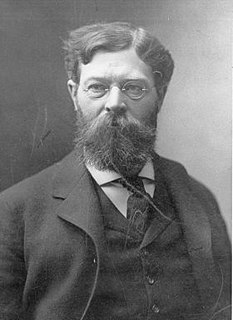A Quote by Michel de Montaigne
Whether the events in our life are good or bad, greatly depends on the way we perceive them.
Related Quotes
When it comes to partisan politics, everyone is a hypocrite. And all they care about is whether it hurts or helps them ... Is it good or bad for the Democrats? Is it good or bad for the Republicans? Is it good or bad for Jews, or good or bad for blacks, or is it good or bad for women? Is it good or bad for men? Is it good or bad for gays? That's the way people think about issues today. There is very little discussion of enduring principles.
Our life is composed of events and states of mind. How ewe appraise our life from our deathbed will be predicated not only on what came to us in life but how we lived with it. It will not be simply illness or health, riches or poverty, good luck or bad, which ultimately define whether we believe we have had a good life or not, but the quality of our relationship to these situations: the attitudes of our states of mind. (34)
[Learn] to slow down and perceive the mysterious events and opportunities that happen in life. We call them coincidences, but if we look closely we see they are meaningful. They bring us just the right information at just the right time to extend our careers, relationships, and growth. These events feel destined in some way, as though the world is set up to help us make a better life, work through our problems, and reach our dreams - if we just pay attention.
All pain in life comes from wishing things were different than they are. Conversely, peace and happiness must come from accepting life as it is and breaking through the barriers of illusion to do so... All things that we label good or bad often hold in them surprises if we stay open. Each of us has choice in how we interpret life's events and in this way we are each responsible for our own reality.
The true test of the American ideal is whether we're able to recognize our failings and then rise together to meet the challenges of our time. Whether we allow ourselves to be shaped by events and history, or whether we act to shape them. Whether chance of birth or circumstance decides life's big winners and losers, or whether we build a community where, at the very least, everyone has a chance to work hard, get ahead, and reach their dreams.
It is so important to remember that, as we travel through life, there will be so many events which we can`t control. These are things that seemingly alter our lives forever or become barriers for living a life of fulfillment. It`s important to remember that the ultimate experience of life is not to be controlled by events. We all have difficult events in our lives - the loss of family members, economics, stress, litigation, government interference in our businesses, health challenges. Remember that it is not the events that shape our lives, but, rather, the meaning we attach to them.
The world we live in is a world of mingled good and evil. Whether it is chiefly good or chiefly bad depends on how we take it. To look at the world in such a way as to emphasize the evil is the art of pessimism. To look at it in such a way as to bring out the good, and throw the evil into the background, is the art of optimism. The facts are the same in either case. It is simply a question of perspective and emphasis.









































